Filter by
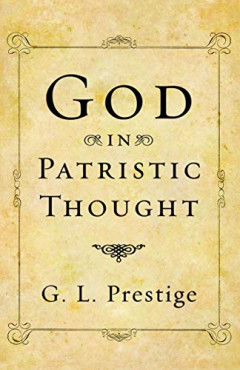
God in Patristic Thought
This book assembles the evidence for what the Greek Fathers, the men whose constructive thought underlies the creeds, really thought and taught about the nature of God. It shows that they were original thinkers, with a profound reverence for the text of the Scriptures, and minds keenly trained to discuss what ultimate truths were expressed in the scriptural text and what reality should be ascri…
- Edition
- -
- ISBN/ISSN
- 9781556357794
- Collation
- Softcover; 318 hlm.; 14 x 21.5 cm
- Series Title
- -
- Call Number
- 231
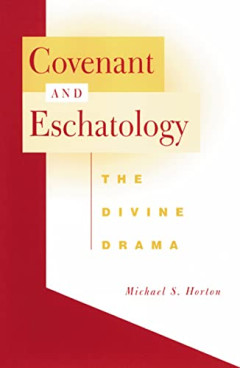
Covenant and Eschatology: The Divine Drama
In this innovative work in theological method and hermeneutics, Michael S. Horton uses the motif of the covenant as a way of binding together God's "word" and God's "act." Seeking an integration of theological method with the content of Christian theology, Horton emphasizes God's covenant as God's way of working for redemption in the world. Horton maintains a substantial dialogue with important…
- Edition
- 1
- ISBN/ISSN
- 0664225012
- Collation
- Softcover; 360 hlm.; 15.44 x 23.11 cm
- Series Title
- -
- Call Number
- 230
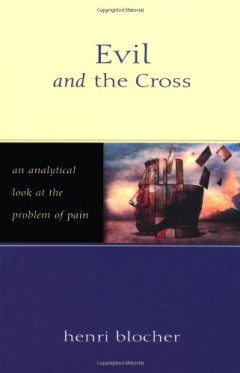
Evil and the Cross: An Analytical Look at the Problem of Pain
"Evil is conquered as evil because God turns it back upon itself." -From the Conclusion Evil. All languages have a word for it, yet philosophers and theologians alike have been unsuccessful in trying to understand it. Where did it come from? Why is it here? In an attempt to answer these questions, both Christians and non-Christians have turned to the only place they can--the Scriptures. I…
- Edition
- -
- ISBN/ISSN
- 9780825420764 / 0825420768
- Collation
- Softcover; 154 hlm.; 14.07 x 21.69 cm
- Series Title
- -
- Call Number
- 231.8

Jesus is Both God and Man: What the Bible Teaches About the Person of Christ
Read this book and recover a sense of wonder as you are drawn to gaze upon the person of the Lord Jesus Christ. Perhaps you have wondered how two natures could perfectly co-exist in one the answers are here, clearly drawn from Scripture and expressed in plain English. It also exposes the fundamental errors of the cults and the liberal theologians who either deny our Lord's divinity or do not do…
- Edition
- -
- ISBN/ISSN
- 9780852344316
- Collation
- Softcover; 175 hlm.; 13.5 x 21.5 cm
- Series Title
- -
- Call Number
- 232.8
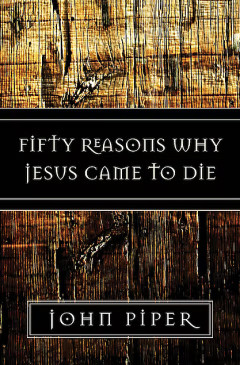
Fifty Reasons Why He Came to Die
WHY? The most important questions anyone can ask are: Why was Jesus Christ crucified? Why did he suffer so much? What has this to do with me? Finally, who sent him to his death? The answer to the last question is that God did. Jesus was God's Son. The suffering was unsurpassed, but the whole message of the Bible leads to this answer. The central issue of Jesus' death is not the cause, but…
- Edition
- -
- ISBN/ISSN
- 9781581347883
- Collation
- Softcover; 127 hlm.; 13.3 x 20.3 cm
- Series Title
- -
- Call Number
- 232.96
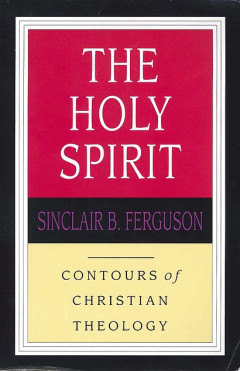
The Holy Spirit: Contours of Christian Theology
The Holy Spirit, once forgotten, has been "rediscovered" in the twentieth century—or has he? Sinclair Ferguson believes we should rephrase this common assertion: "While his work has been recognized, the Spirit himself remains to many Christians an anonymous, faceless aspect of the divine being." In order to redress this balance, Ferguson seeks to recover the who of the Spirit fully as much as…
- Edition
- -
- ISBN/ISSN
- 9780830815364
- Collation
- Softcover; 288 hlm.; 15.39 x 22.91 cm
- Series Title
- Contours of Christian Theology
- Call Number
- 231.3
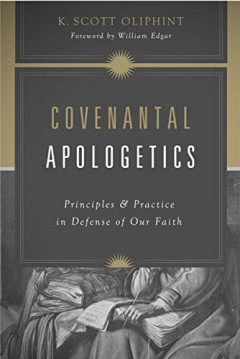
Covenantal Apologetics: Principles and Practice in Defense of Our Faith
Defending the faith can be daunting, and a well-reasoned and biblically grounded apologetic is essential for the challenge. Following in the footsteps of groundbreaking apologist Cornelius Van Til, Scott Oliphint presents us with an introduction to Reformed apologetics as he sets forth the principles behind a distinctly ?covenantal? approach. This book clearly explains the theological foundatio…
- Edition
- -
- ISBN/ISSN
- 9781433528170
- Collation
- Softcover; 277 hlm.; 15 x 23 cm
- Series Title
- -
- Call Number
- 239
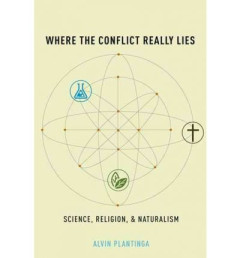
Where The Conflict Really Lies: Science, Religion & Naturalism
A long-awaited major statement by pre-eminent analytic philosopher Alvin Plantinga, "Where the Conflict Really Lies" illuminates one of our society's biggest debates - the conflict between science and religion. Plantinga examines where this conflict is said to exist - looking at areas such as evolution, divine action in the world, and the scientific study of religion. He makes a case that their…
- Edition
- 1
- ISBN/ISSN
- 9780199812097
- Collation
- Hardcover; 375 hlm.; 14.22 x 21.08 cm
- Series Title
- -
- Call Number
- 231.7
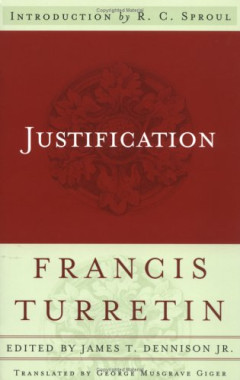
Justification
Martin Luther contended that the church stands or falls on the doctrine of justification. With challenges to the Reformer's view coming from several directions today, R. C. Sproul finds the appearance of Francis Turretin's Justification "a welcome relief." Is the ground of our justification "the righteousness of Christ in us or the righteousness of Christ for us?" In the introduction, Sproul fi…
- Edition
- 1
- ISBN/ISSN
- 0875527051
- Collation
- Softcover; 115 hlm.; 13.5 x 21.5 cm
- Series Title
- -
- Call Number
- 234.7
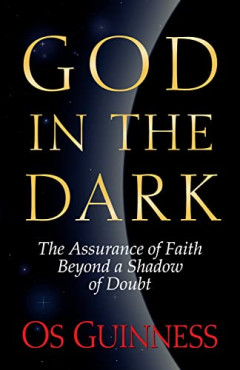
God in the Dark: The Assurance of Faith Beyond a Shadow of Doubt
Do you have significant doubts about God? Are you afraid to doubt, much less admit to anyone that you aren't fully convinced of God's faithfulness? Are you so torn by your questions that life is losing its meaning? This forthright but compassionate book works to tear away the layers of misunderstanding about doubt to reveal not only its dangers but its great value. As author Os Guinness expl…
- Edition
- 1
- ISBN/ISSN
- 9780891078456
- Collation
- Softcover; 224 hlm.; 14.17 x 21.77 cm
- Series Title
- -
- Call Number
- 231.042
 Computer Science, Information & General Works
Computer Science, Information & General Works  Philosophy & Psychology
Philosophy & Psychology  Religion
Religion  Social Sciences
Social Sciences  Language
Language  Pure Science
Pure Science  Applied Sciences
Applied Sciences  Art & Recreation
Art & Recreation  Literature
Literature  History & Geography
History & Geography